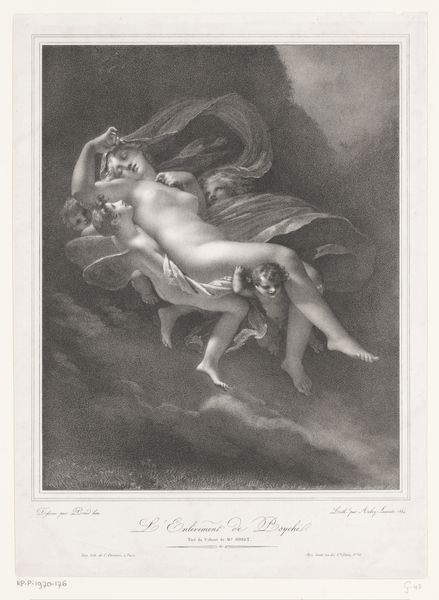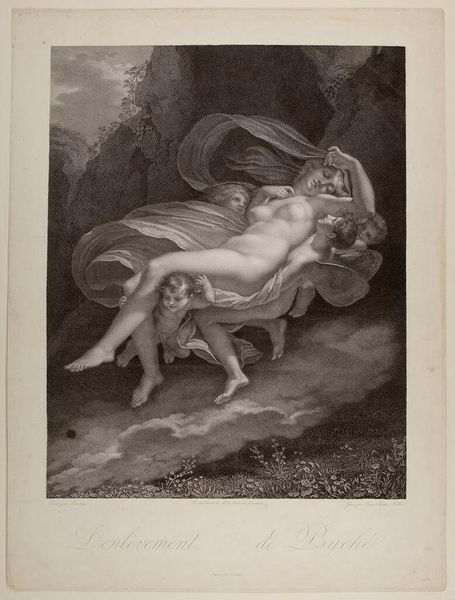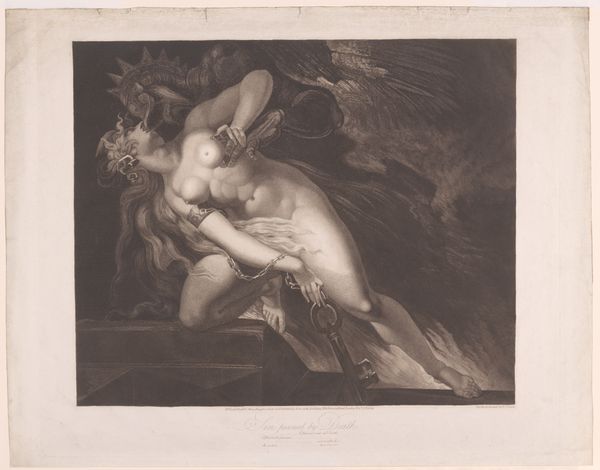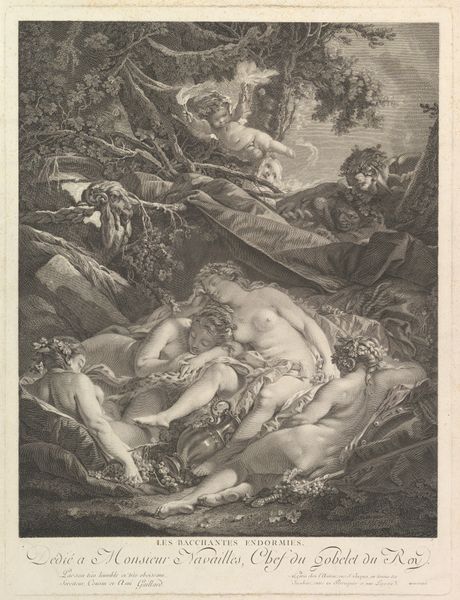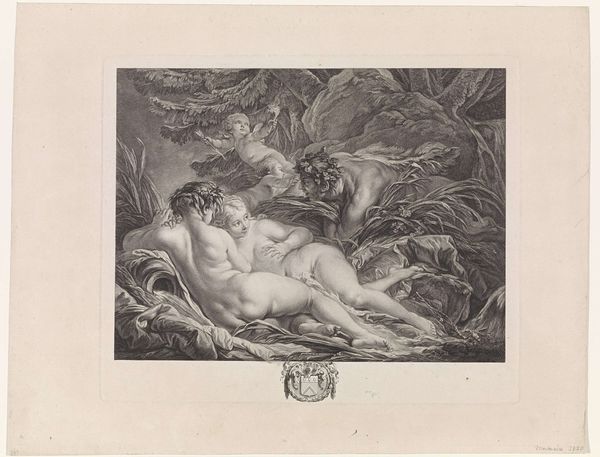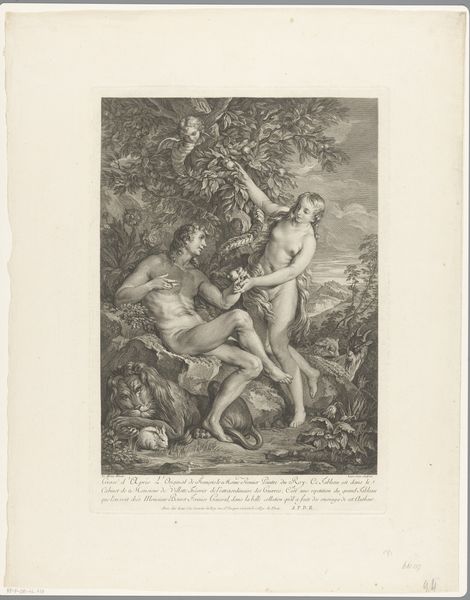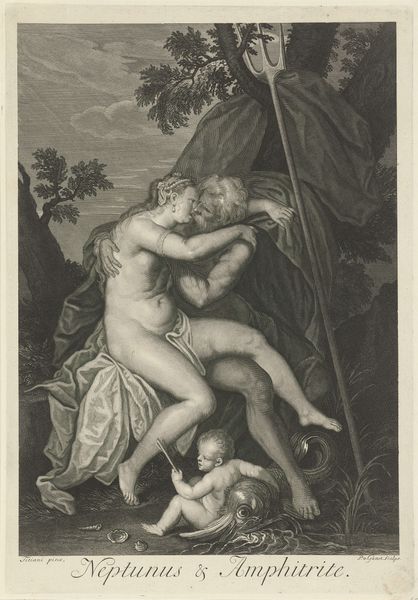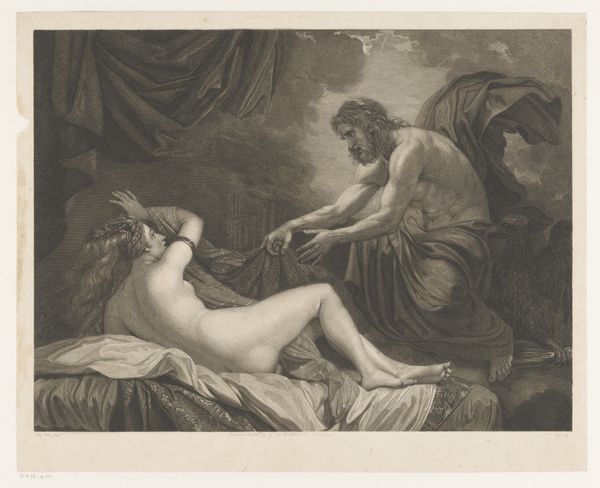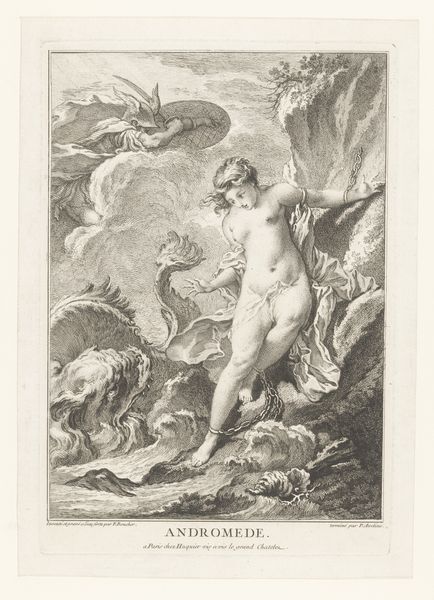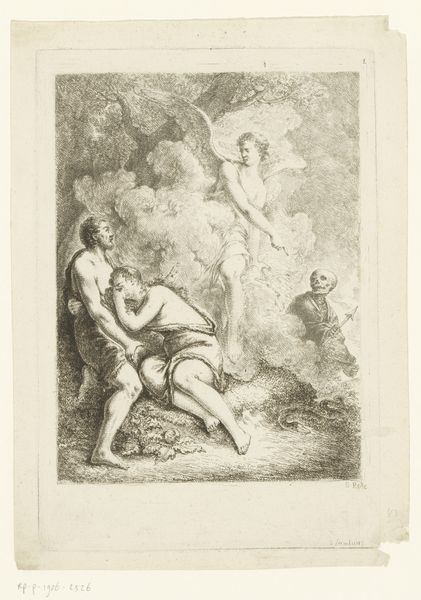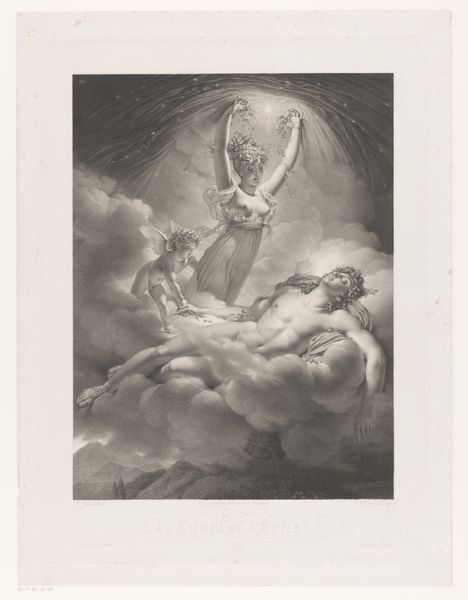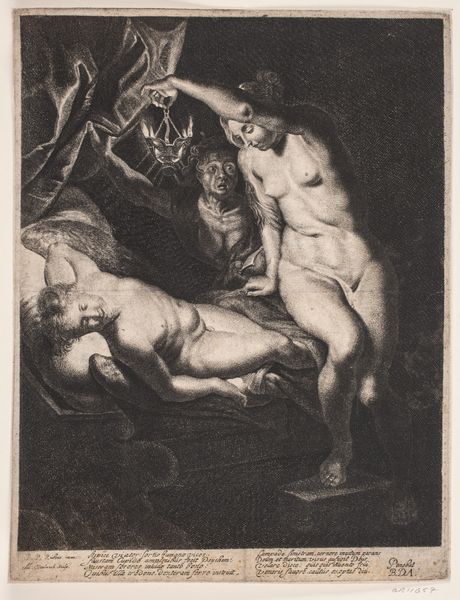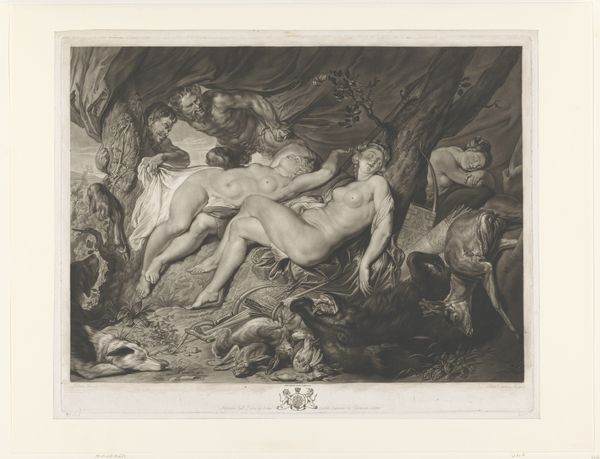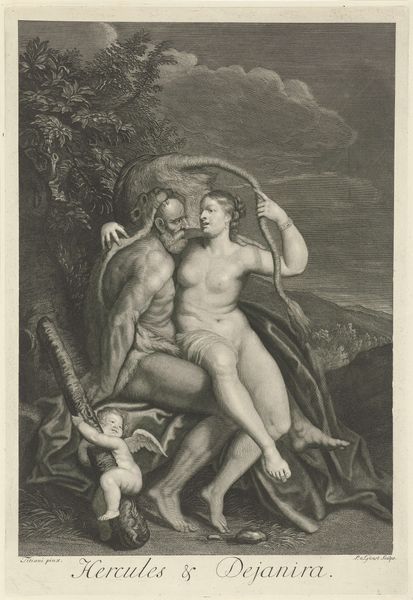
engraving
#
allegory
#
romanticism
#
19th century
#
nude
#
engraving
Dimensions: height 60 mm, width 485 mm
Copyright: Rijks Museum: Open Domain
Henri Charles Müller made this print, *The Abduction of Psyche by Zephyr*, employing aquatint, a printmaking technique that renders tonal gradations through acid etching. This imagery—drawn from classical mythology—gained enormous popularity in post-revolutionary France, its antique subjects and allegorical form a perfect fit for the self-consciously neoclassical style that came to dominate French art under Napoleon. The subject matter, focusing on a moment of abduction and rescue, reflected both a fascination with the irrational and the continued subordination of women. Müller's artistic choices, like those of other artists of his era, were deeply embedded in the cultural and political circumstances of the time. We can understand this print as one expression of how the artistic establishment sought to redefine itself after the upheavals of revolution. Close examination of prints like these, alongside archival research into exhibition records and art criticism, helps us to reconstruct the complex interplay between art, power, and society.
Comments
No comments
Be the first to comment and join the conversation on the ultimate creative platform.
